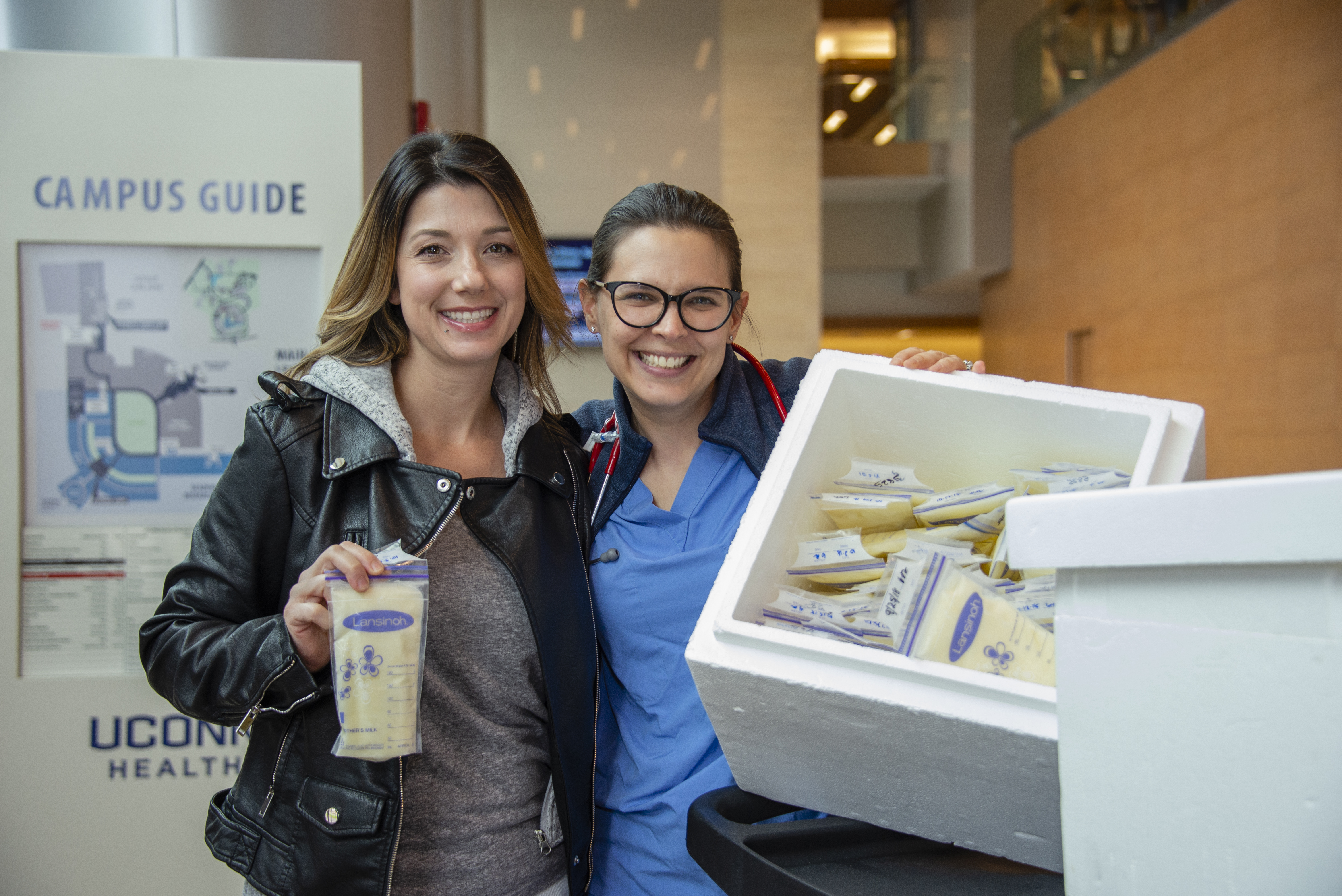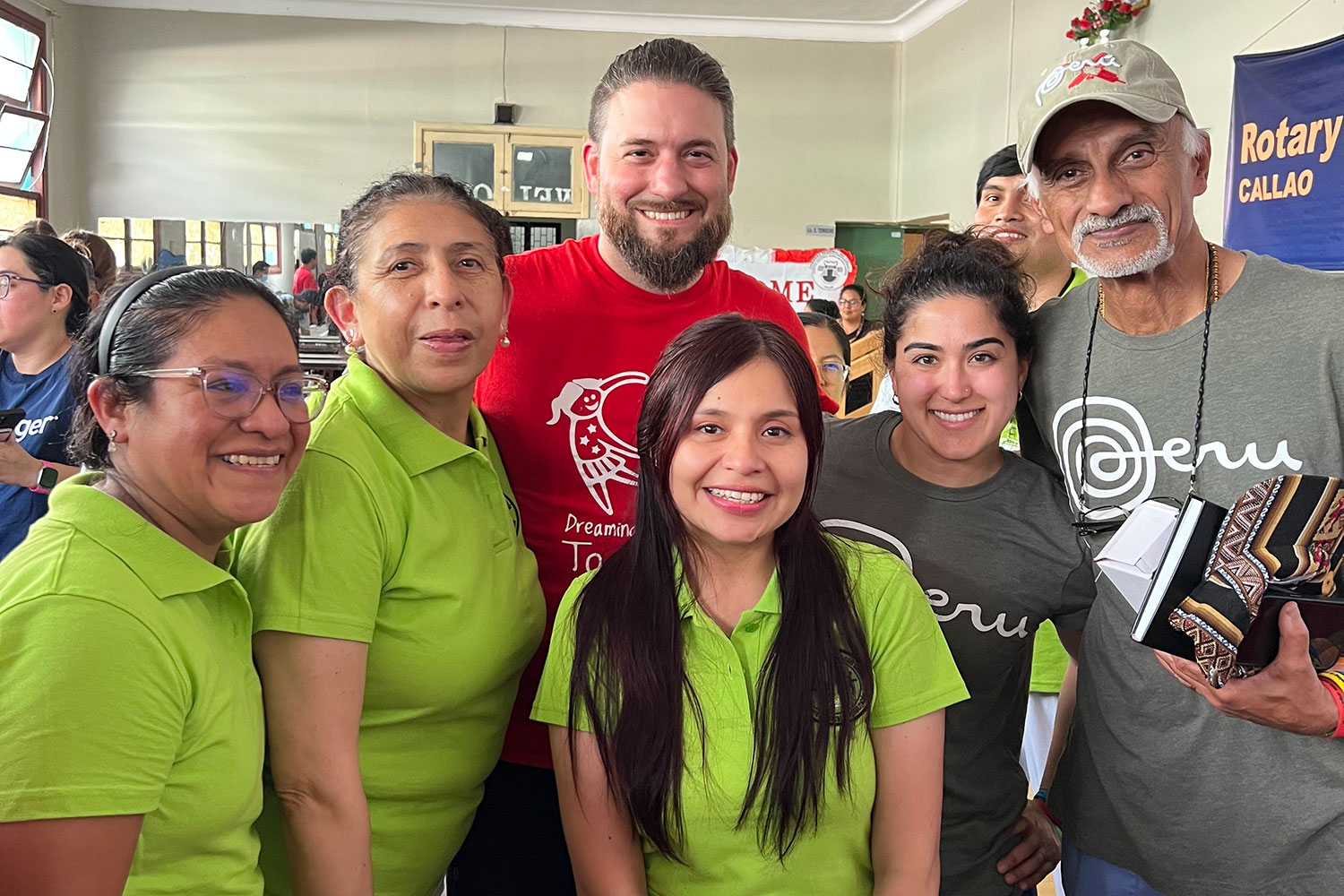On May 1, UConn Health’s milk depot reached 10,000 ounces of donated breast milk. On average, over 1,500 ounces are collected monthly.
“Since the launch of the milk depot project, we have been overwhelmed with the amount of support we have received from the community and especially from our donor moms,” said Marisa Merlo, lactation consultant for UConn Health’s Department of Obstetrics and Gynecology. “As a result of such unbelievable support, I am so very proud that we received our 10,000th ounce of donated breast milk yesterday. The number of newborns who benefit from these donations is immeasurable.”
The milk depot opened last August, and was the fifth in Connecticut to join Mothers’ Milk Bank Northeast. The nonprofit community milk bank, accredited by the Human Milk Banking Association of North America, distributes donated, pasteurized human milk to babies in fragile health throughout the Northeast.
For the last eight months, the milk depot has collected donations from eligible women in the community. The donations are accepted by Merlo at UConn Health and are safeguarded in the Milk Depot’s freezer. The frozen milk is then shipped to Mothers’ Milk Bank Northeast for pasteurization processing and distribution to their network of NICUs.
Breast milk has “endless benefits,” according to Merlo, and research shows it is the best source of nutrition for all babies, especially those born prematurely. Breast milk can benefit a baby’s overall survival, healthy growth and development, and immunity. The CDC, WHO, and American Academy of Pediatrics guidelines all recommend that babies be breastfed or receive breast milk for the first six months of their life, if possible. Breastfeeding for six months is also one of the top 10 cancer prevention recommendations by the American Institute for Cancer Research.
“This milestone would be unreachable without all of the wonderful people, both behind the scenes, and our amazing donor moms who have been involved in the depot since day one,” adds Merlo. “I take great pride in this project, and I am looking forward to our next 10,000 ounces of liquid gold.”



